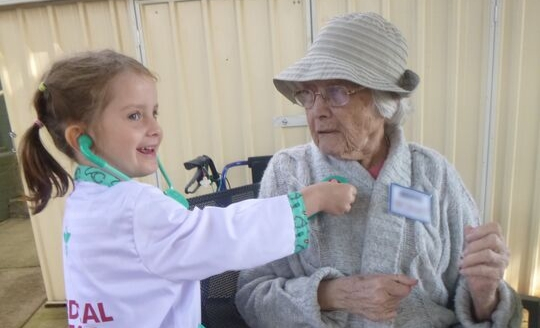News
Shared IG model most cost-effective: findings from Australia

The Intergenerational Care Project team led by Griffith University’s researchers Dr Katrina Radford, Professor Anneke Fitzgerald and Dr Nerina Vecchio held a Q&A Open Forum (click to view the full Open Forum) on 21st August where they shared key findings on participant, workforce and economic outcomes of their study. The Project involved the development, implementation and evaluation of an intergenerational learning program in Australia involving children aged 3 to 5 years and older adults in residential care or attending day respite care services.
The research looked at two models of care: the co-location model where aged care and childcare are situated on the same premises; and the visitation model where aged care and childcare are located separately and one group travels to the other. The 16-week program where children and older adults came together for an hour per week has had a positive impact on the sense of well-being among the elderly and improved confidence and communication skills in children.
Both aged care and childcare staff involved in the study felt that despite the increase in workload and added responsibilities, the program added more meaning and value to their work. Economic findings reveal the shared model to be the most cost-effective followed by aged care recipients visiting childcare centres.